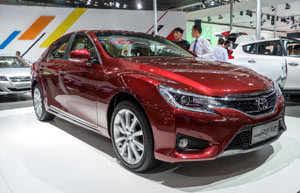

NANNING -- The upgrade of China's rural medical system is breeding corruption among heads of medical institutions in the country's remote areas.
Between 2009 and August of this year, the presidents of six rural health centers were prosecuted by the local procuratorate for taking kickbacks in the coastal city of Fangchenggang in south China's Guangxi Zhuang autonomous region, making it the biggest commercial bribery case in the city's medical system.
According to procuratorate documents, the suspects received kickbacks from pharmaceutical sales representatives worth 934,800 yuan ($152,496) when purchasing medical equipment such as Color B ultrasound machines in Fangchenggang, home to ten rural health centers.
The case was just one more in a series of similar cases in a corruption quagmire that has trapped several public officers working for the country's rural medical system.
In 2012, six health center deans in Guangxi's Luocheng county, a poverty-stricken county under the jurisdiction of Hechi city, were busted for accepting commissions while buying expensive medical equipment between 2008 and 2011.
Official documents show that the sales agents provided kickbacks to the centers' heads ranging from 10 percent to a staggering 25 percent in an attempt to increase sales.
A suspect in the case, surnamed Nan, confessed to police that sales agents would come to his workplace repeatedly, persuading him with lavish dinners while promising him great benefits if he chose to buy the equipment they were selling. The suspect said he could not resist the temptation and slipped into the corruption abyss.
A pharmaceutical sales representative usually promotes medical equipment from multiple suppliers to public officers at China's rural health centers, according to Wang Runsheng, deputy director of Hechi's anti-corruption and bribery bureau.
But some representatives offer lucrative kickbacks to officers who promise to buy equipment with public funds rather than procuring the devices through a public bidding process, and the quality of the products cannot be guaranteed, Wang said.
Taking kickbacks has become a de facto rule in China's grassroots health centers, he said."One of the suspects told me that if he did not take the money, he would be regarded as weird and thus be alienated among his circles in the health centers," Wang added.
As China strives to upgrade the country's rural medical system, heads of medical centers around the country have reportedly jumped on the kickback bandwagon when replacing old equipment.
Earlier this year, officers with the municipal procuratorate of Liaocheng city in east China's Shandong province found that 16 rural health centers were involved in such cases, accounting for 88.9 percent of hospital and health center bribery cases in the city.
From 2009 to 2011, six heads of rural health centers in Dayao county in southwest China's Yunnan province were targeted in a crackdown for taking kickbacks when buying medical equipment.
In a 2011 anti-corruption campaign, four health center heads in Xinshao county in the central province of Hunan were punished for taking commissions when purchasing medical equipment.
Before the frequent corruption cases emerged in the rural medical system, health centers in China's countryside were struggling with poor material conditions. In 2006, more than 60 percent of such centers reported a lack of basic medical equipment, according to government statistics.
During a survey trip to China's rural areas, Bai Zhipeng, deputy director of the China Association of Medical Equipment, found that almost one-third of the county- and township-level health centers in the less-developed middle and western areas of China owned nothing but stethoscopes, tonometers and refrigerators.
 Getting in the mood
Getting in the mood
 Models at Mercedes pavilion at 2013 Auto Guangzhou
Models at Mercedes pavilion at 2013 Auto Guangzhou
 Buick Riviera concept car at 2013 Auto Guangzhou
Buick Riviera concept car at 2013 Auto Guangzhou
 FAW-VW all-new Golf at Guangzhou auto show
FAW-VW all-new Golf at Guangzhou auto show
 VW donates more than 5k child safety seats
VW donates more than 5k child safety seats
 Honda models at 2013 Guangzhou auto show
Honda models at 2013 Guangzhou auto show
 Honda Jade at the 2013 Guangzhou auto show
Honda Jade at the 2013 Guangzhou auto show
 Toyota's new Reiz debuts at 2013 Auto Guangzhou
Toyota's new Reiz debuts at 2013 Auto Guangzhou